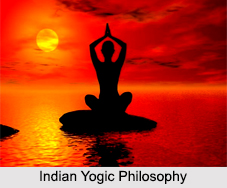Indian Yogic Philosophy on spirituality is intricately much deeper and rich than anywhere else. The strong roots have not only been preserved by the Indian culture and traditions since thousands of years, but have also spread to the western nations. It is based on this ideology that conception of Hatha Yoga has taken place. Since Hatha yoga has developed post-Vedic, it is important to place yoga within the context of Indian philosophy. To know Hatha, one has to understand at least some of the theoretical themes that reveal the practical endeavour of yoga. This elaborate theme is embedded in Indian philosophy or Darshanas. To understand the relation with Hatha Yoga, particular attention is required for the classical Yoga Darshana of Patanjali and its relevance to Hatha Yoga.
The Six Astika Darshanas
Vedic Samhitas may be seen as the roots of the Indian philosophical tradition. The Brahmanas, Aranyakas and Upanishads may arise from that root which then followed the multiple philosophical ‘schools’ in the post-Vedic era. The authority of these schools is derived from their adherence to the Vedic scriptures. Although, they all are secondary to the Vedas and Upanishads themselves, each major ‘school’ is presented not in the form of a long and rigorously argued treatise but as a series of terse statements, known as ‘Sutras’. Sutras are the coded medium to convey knowledge in different ways. The traditions of interpretation, which are based upon these texts, are known as Darshanas. Sutras, like shruti are believed to be verbal expressions of truth or realization.
